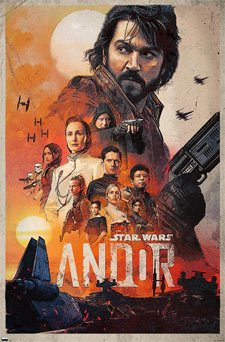
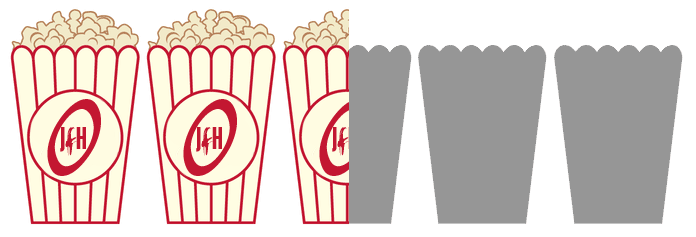

In an era filled with danger, deception, and intrigue, Cassian Andor embarks on a path that is destined to turn him into a Rebel hero. (from IMDb)
From the outset of the announcement of Rogue One, the space occupied by the "Andorverse" positioned itself as the thinking person's Star Wars: A prestige drama draped in the robes of rebellion, stripped of space wizards, and determined to reframe the galaxy far, far away through the lens of the little guy. Political tension, moral ambiguity, and grim realism were set to be seen across the daily lives of Rebels and Imperials. And for the lion's share of its run, it stuck with that ambition. This was Star Wars without lightsabers or Chosen Ones -- slow, brooding, and, on the surface, a great idea. A moment of transparency: As a critic and a fan, I was more excited for Andor than I was for any of the other shows or films in the pipeline. The idea of a grounded, gritty drama in a less-civilized age was exciting and seemed like an opportunity for Disney to course-correct. (Even if it did double down on the erasure of Kyle Katarn.)
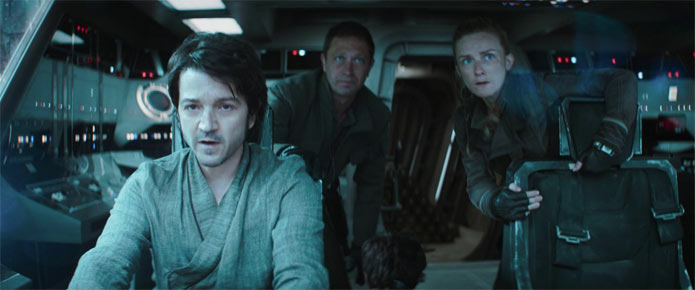
Unfortunately, in trying so hard to distance itself from the mythic clarity and heartbeat of the Original and Prequel Trilogies, Andor often traded substance for posture. Across its planned two-season run, it constantly gestures at moral complexity but rarely interrogates it. "Good" characters commit ruthless acts, and the show frames these choices not as hard-won decisions but as inevitable tools of "the cause." Instead of wrestling with ambiguity, Andor often assumes the audience will accept moral relativism by default: If the rebels did it, it must automatically be necessary.
This postmodern mood, where objective categories like good and evil are flattened into subjective perspectives, is emblematic of a broader cultural trend. Andor doesn't just reflect this; it seems to embrace it. The show often opts for situational ethics and a worldview where power, not truth, determines meaning. Ideas of harboring and holding on to hatred are encouraged and rewarded. It celebrates rebellion not as a response to injustice but as rebellion for its own sake. The Alliance flirts with chaos, anarchy, and factionalism, with little sense of moral unity or greater purpose. Notably, House of Cards creator Beau Willimon is among the writers behind Andor -- and the show often feels like that brand of political cynicism has made itself comfortable in a galaxy far, far away.
The measured result is a universe where the lines between light and dark are blurred not to reveal complexity but to suggest futility. (At least, futility along the way, as we all know how this story ultimately unfolds into -- pun intended -- A New Hope.) In this sense, Andor didn't subvert Disney-era cynicism. It completed it.
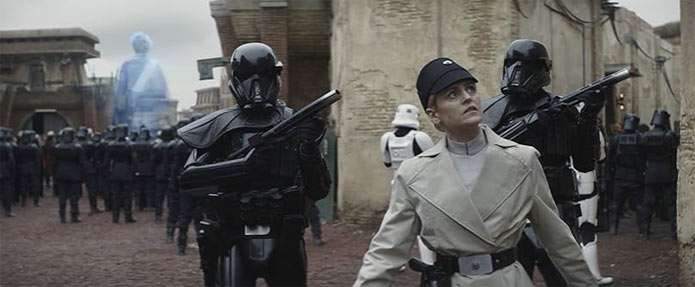
And yet, for all its tonal and philosophical fragmentation, Andor managed to deliver some of the most gripping individual moments of the Disney era. The heist payoff of Season 1 and subsequent prison-arc are well-crafted and have earned rightful praise from critics. The final arc of Season 2 is also a standout, with Episode 10 being especially noteworthy as it rabbit-trails alongside two of the show's most intriguing characters. It's no coincidence that the show is at its best when focusing on them -- when it sheds the ideological performance and lets its characters simply be.
The semi-final crescendo leading into Rogue One is genuinely powerful. There's emotional resonance, narrative cohesion, and a sense of inevitability that works. But even here, the show betrays its own identity. The very final scene undercuts this crescendo and lands as trite and sentimental, reaching for something safe. Something predictable.
First, it cheated Star Wars. Then, it cheated itself.
This contradiction runs through the entire series. It wants to be Star Wars, but not too much. It wants to be prestige television, but without the relational or emotional depth that gives prestige its weight. It wants to be morally serious but avoids moral reckoning. It looks like a thoughtful deconstruction, but often plays more like an ideological echo chamber dressed in monologues and grayscale lighting.
That said, the show deserves credit in other areas. The acting is consistently strong across the board, with standout performances not only from Stellan Skarsgård and Denise Gough, but also from the supporting cast, like Andy Serkis, Elizabeth Dulau, and Benjamin Bratt, many of whom elevate scenes that would otherwise drag. The set design is remarkable, with each world feeling distinct and lived-in. Furthermore, the audio design is immersive, and while the score never quite reaches iconic heights, it serves the tone well.
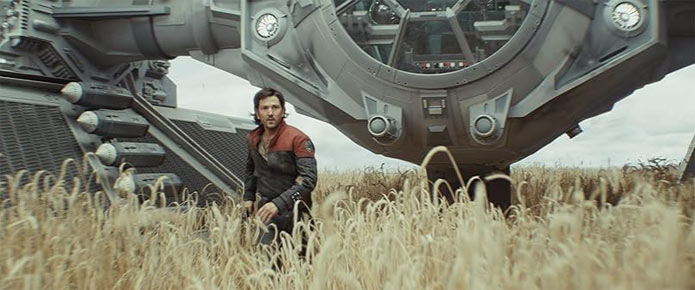
In the end, Andor will be remembered as a bold experiment. It's been well received by the Internet; has been less so across the ever-shrinking IRL channels. As much as it may have stumbled in its thematic execution, its production is top-tier. It tried to bring political gravitas and artistic weight to a franchise often accused of simplicity. In certain arcs, it succeeded. But in trying to transcend Star Wars, it forgot what made Star Wars compelling in the first place: not just rebellion, but purpose; not just grit, but soul.
Andor succeeded in stripping away the mythic elements of Star Wars, creating a world of politics, secrecy, and sacrifice. That approach could have offered a new kind of moral seriousness, but too often, the show leans into ambiguity without direction, framing cruelty as necessity and rebellion as self-justifying. It's not the lack of Jedi that creates the void; it's the lack of moral clarity to replace them.
- David Craft (reviewed: 5/14/25)
Disclaimer: All reviews are based solely on the opinions of the reviewer. Most reviews are rated on how the reviewer enjoyed the film overall, not exclusively on content. However, if the content really affects the reviewer's opinion and experience of the film, it will definitely affect the reviewer's overall rating.
 Casey J Drops First Album in 6 Years, "The Stories We Sing Vol. 1" Casey J Drops First Album in 6 Years, "The Stories We Sing Vol. 1"Thu, 05 Mar 2026 13:46:00 EST |
 The K-LOVE Fan Awards Returns to Nashville's Opry House May 24 The K-LOVE Fan Awards Returns to Nashville's Opry House May 24Thu, 05 Mar 2026 13:35:00 EST |
 StowTown Records Releases New Album "Rise and Shine" from Sunday Drive StowTown Records Releases New Album "Rise and Shine" from Sunday DriveThu, 05 Mar 2026 13:12:00 EST |
 Mat Kearney Announces "Nothing Left To Lose" 20th Anniversary Tour Mat Kearney Announces "Nothing Left To Lose" 20th Anniversary TourWed, 04 Mar 2026 19:10:00 EST |
 We The Kingdom Celebrates RIAA Gold Certification of "God So Loved" We The Kingdom Celebrates RIAA Gold Certification of "God So Loved"Tue, 03 Mar 2026 18:40:00 EST |
 Mary-Clair Attends Lionsgate's "I Can Only Imagine 2" Premiere Mary-Clair Attends Lionsgate's "I Can Only Imagine 2" PremiereTue, 03 Mar 2026 18:30:00 EST |
 Stand41TrueGod to Release New Single "Wilderness" on All Platforms March 13 Stand41TrueGod to Release New Single "Wilderness" on All Platforms March 13Tue, 03 Mar 2026 18:20:00 EST |
 Click here All News Headlines |
Click here All News Headlines |